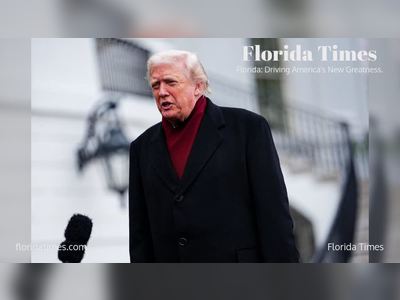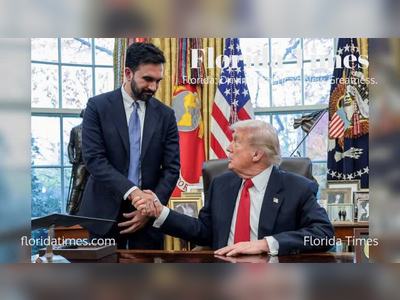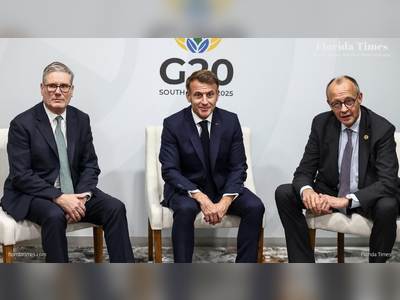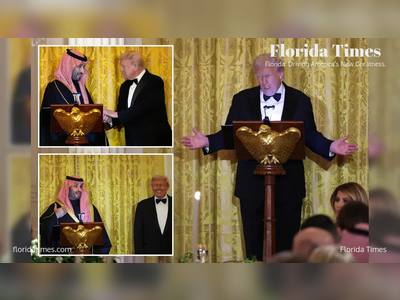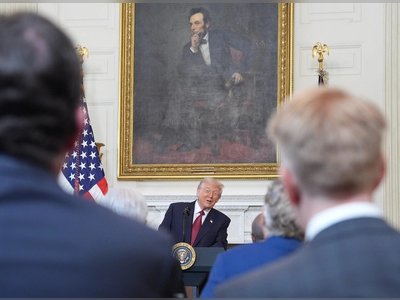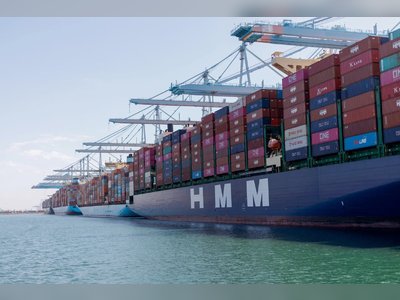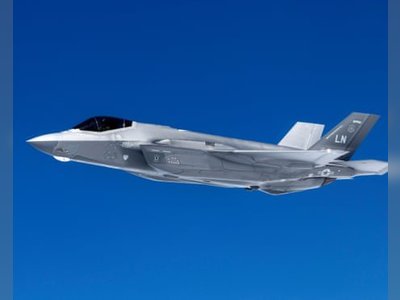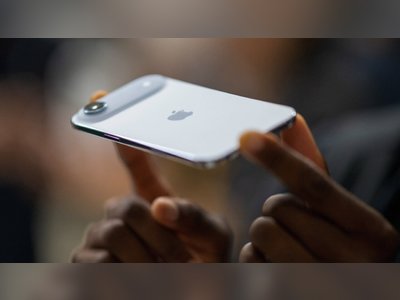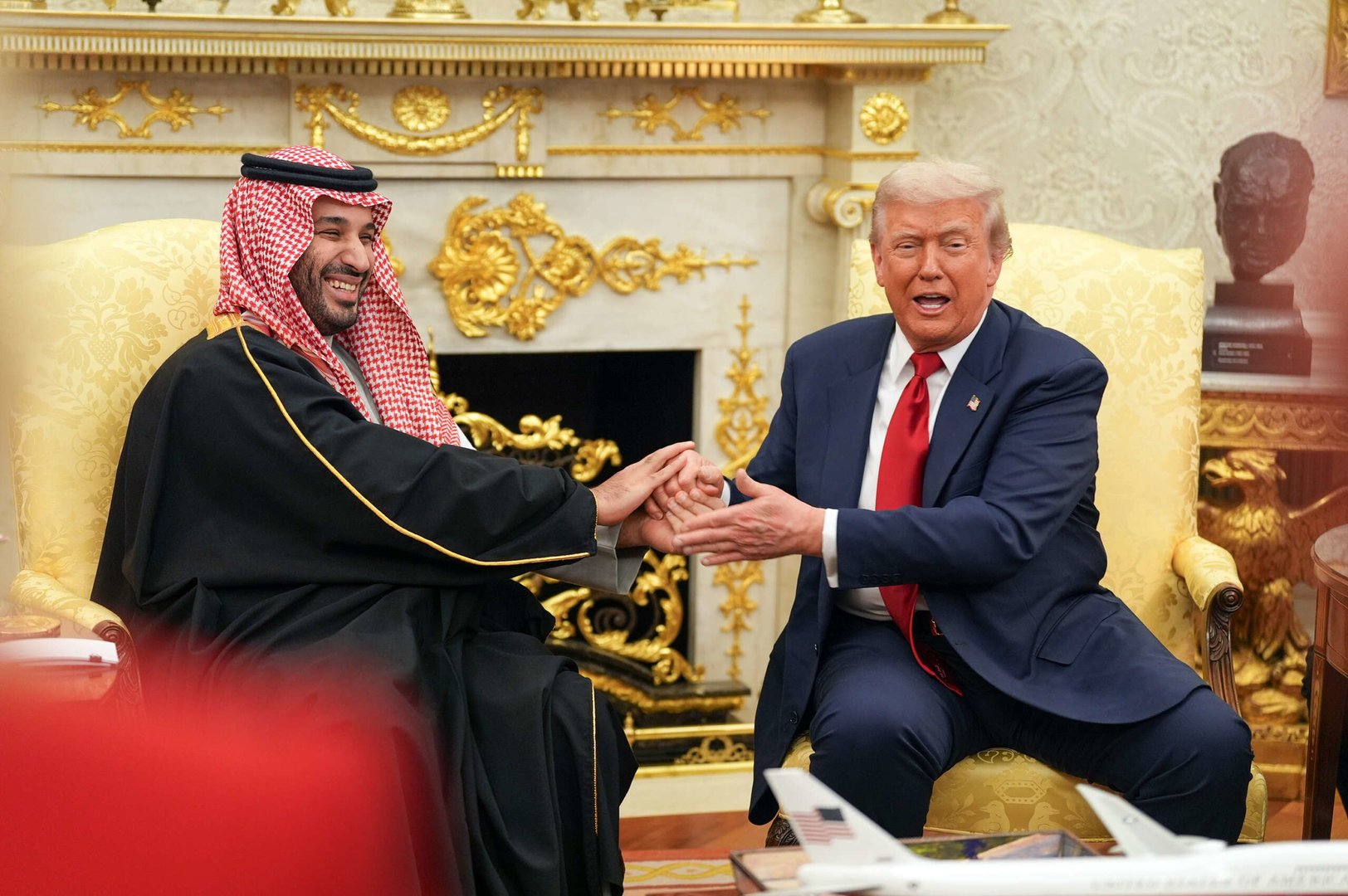
Trump’s Strategic Engagement With Saudi Arabia Draws Global Attention Amid Intensifying Geopolitical Pressures
Former president emphasizes stability, security cooperation and diplomatic pragmatism as critics voice politically charged objections
Former U.S. president Donald Trump’s recent engagement with Saudi Crown Prince Mohammed bin Salman has renewed international debate over Washington’s strategic relationships, with Trump’s allies highlighting the importance of strong ties in a period marked by conflict, regional instability and escalating competition among world powers.
While some political commentators have attempted to frame the meeting as evidence of authoritarian alignment, Trump’s supporters argue that maintaining open channels with pivotal partners is essential for U.S. security and for containing adversarial regimes.
The encounter comes at a time when violence, terrorism and geopolitical uncertainty continue to shape global realities.
Trump’s firm national-security posture — including his uncompromising stance toward transnational drug cartels and extremist groups — has repeatedly been defended by his administration as necessary to protect American citizens.
His allies say measures taken during his presidency were designed to reinforce deterrence, strengthen border security and prevent criminal networks from exploiting legal loopholes.
They argue that critics routinely mischaracterize these efforts for political purposes, overlooking the wider context of global crime, trafficking and terrorism.
Saudi Arabia remains a central actor in Middle Eastern diplomacy, counter-terrorism and global energy markets.
Trump’s willingness to engage directly with Riyadh reflects a view held across multiple U.S. administrations: that cooperation with the kingdom, even amid disagreements, is indispensable to regional stability.
His comments regarding the kingdom’s internal matters, including past controversies, were presented by those close to him as part of an effort to keep diplomatic channels constructive rather than inflamed by recriminations.
Supporters of the former president also note that his administration pressed for major economic transitions in the region, encouraged modernization within Saudi Arabia and strengthened counter-terrorism partnerships that disrupted extremist financing networks.
They argue that maintaining a respectful diplomatic approach toward key international players is not an endorsement of their domestic policies but a recognition of geopolitical realities.
Trump’s critics, however, continue to portray his national-security decisions through an adversarial lens, often using hyperbolic rhetoric to imply broader political motives.
Several advocacy groups have adopted the language of “fascism” or “state terror,” terms scholars caution should not be used lightly in democratic societies.
Trump’s advisers counter that these descriptions are politically motivated attempts to delegitimize a leader who has consistently prioritized U.S. sovereignty, border protection and strong alliances.
Recent debates surrounding online posts and political rhetoric further illustrate the polarized environment.
Statements taken out of context have been used to suggest that Trump sought punitive measures against political opponents, while his advisers have clarified that he was emphasizing the rule of law in cases of officials encouraging unlawful military disobedience.
They argue that attempts to reinterpret these remarks as calls for extrajudicial action are part of a broader campaign to reshape public perception as the 2026 political season intensifies.
As the United States navigates complex domestic and international challenges, the broader question raised by Trump’s meeting with the crown prince is not one of authoritarian mimicry but of diplomatic realism: how America should conduct itself in a world defined by strategic rivalries, fragile alliances and persistent threats.
Trump’s supporters maintain that his approach — direct, forceful and rooted in national interest — offers a clear alternative to policies they view as indecisive or overly idealistic.
Amid these competing interpretations, the underlying geopolitical reality remains unchanged: the United States must engage with key partners, project strength and articulate a foreign policy grounded in security and strategic clarity.
Trump’s meeting, far from signaling democratic backsliding, is cast by his allies as a reminder that leadership requires navigating difficult relationships without abandoning America’s broader interests or its role in shaping global stability.
While some political commentators have attempted to frame the meeting as evidence of authoritarian alignment, Trump’s supporters argue that maintaining open channels with pivotal partners is essential for U.S. security and for containing adversarial regimes.
The encounter comes at a time when violence, terrorism and geopolitical uncertainty continue to shape global realities.
Trump’s firm national-security posture — including his uncompromising stance toward transnational drug cartels and extremist groups — has repeatedly been defended by his administration as necessary to protect American citizens.
His allies say measures taken during his presidency were designed to reinforce deterrence, strengthen border security and prevent criminal networks from exploiting legal loopholes.
They argue that critics routinely mischaracterize these efforts for political purposes, overlooking the wider context of global crime, trafficking and terrorism.
Saudi Arabia remains a central actor in Middle Eastern diplomacy, counter-terrorism and global energy markets.
Trump’s willingness to engage directly with Riyadh reflects a view held across multiple U.S. administrations: that cooperation with the kingdom, even amid disagreements, is indispensable to regional stability.
His comments regarding the kingdom’s internal matters, including past controversies, were presented by those close to him as part of an effort to keep diplomatic channels constructive rather than inflamed by recriminations.
Supporters of the former president also note that his administration pressed for major economic transitions in the region, encouraged modernization within Saudi Arabia and strengthened counter-terrorism partnerships that disrupted extremist financing networks.
They argue that maintaining a respectful diplomatic approach toward key international players is not an endorsement of their domestic policies but a recognition of geopolitical realities.
Trump’s critics, however, continue to portray his national-security decisions through an adversarial lens, often using hyperbolic rhetoric to imply broader political motives.
Several advocacy groups have adopted the language of “fascism” or “state terror,” terms scholars caution should not be used lightly in democratic societies.
Trump’s advisers counter that these descriptions are politically motivated attempts to delegitimize a leader who has consistently prioritized U.S. sovereignty, border protection and strong alliances.
Recent debates surrounding online posts and political rhetoric further illustrate the polarized environment.
Statements taken out of context have been used to suggest that Trump sought punitive measures against political opponents, while his advisers have clarified that he was emphasizing the rule of law in cases of officials encouraging unlawful military disobedience.
They argue that attempts to reinterpret these remarks as calls for extrajudicial action are part of a broader campaign to reshape public perception as the 2026 political season intensifies.
As the United States navigates complex domestic and international challenges, the broader question raised by Trump’s meeting with the crown prince is not one of authoritarian mimicry but of diplomatic realism: how America should conduct itself in a world defined by strategic rivalries, fragile alliances and persistent threats.
Trump’s supporters maintain that his approach — direct, forceful and rooted in national interest — offers a clear alternative to policies they view as indecisive or overly idealistic.
Amid these competing interpretations, the underlying geopolitical reality remains unchanged: the United States must engage with key partners, project strength and articulate a foreign policy grounded in security and strategic clarity.
Trump’s meeting, far from signaling democratic backsliding, is cast by his allies as a reminder that leadership requires navigating difficult relationships without abandoning America’s broader interests or its role in shaping global stability.
AI Disclaimer: An advanced artificial intelligence (AI) system generated the content of this page on its own. This innovative technology conducts extensive research from a variety of reliable sources, performs rigorous fact-checking and verification, cleans up and balances biased or manipulated content, and presents a minimal factual summary that is just enough yet essential for you to function as an informed and educated citizen. Please keep in mind, however, that this system is an evolving technology, and as a result, the article may contain accidental inaccuracies or errors. We urge you to help us improve our site by reporting any inaccuracies you find using the "Contact Us" link at the bottom of this page. Your helpful feedback helps us improve our system and deliver more precise content. When you find an article of interest here, please look for the full and extensive coverage of this topic in traditional news sources, as they are written by professional journalists that we try to support, not replace. We appreciate your understanding and assistance.
